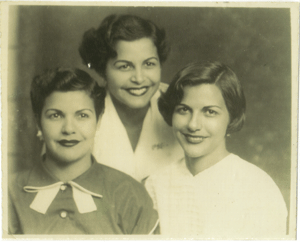Today is White Ribbon Day
The United Nations
On 17 December 1999 the United Nations adopted Resolution 54/134 designating 25 November as the International Day for the Elimination of Violence against Women.
The General Assembly stated that it was:
-
- Concerned that violence against women is an obstacle to the achievement of equality, development and peace………and to the full implementation of the Convention on the Elimination of All Forms of Discrimination against Women,
-
- Concerned also that some groups of women, such as women belonging to minority groups, indigenous women, refugee women, migrant women, women living in rural or remote communities, destitute women, women in institutions or in detention, the girl child, women with disabilities, elderly women and women in situations of armed conflict, are especially vulnerable to violence,
-
- Recognised that violence against women is a manifestation of historically unequal power relations between men and women, which have led to domination over and discrimination against women by men and to the prevention of their full advancement, and that violence against women is one of the crucial social mechanisms by which women are forced into subordinate positions, compared with men,
-
- Recognised also that the human rights of women and of girls are an inalienable, integral and indivisible part of universal human rights, and recognising further the need to promote and protect all human rights of women and girls,
- Alarmed that women do not fully enjoy their human rights and fundamental freedoms, and concerned about the long-standing failure to protect and promote those rights and freedoms in relation to violence against women.
History of the Day
Previously, 25 November was observed in Latin America and a growing number of other countries around the world as “International Day Against Violence Against Women”. With no standard title, it was also referred to as “No Violence Against Women Day” and the “Day to End Violence Against Women”. It was first declared by the first Feminist Encuentro for Latin America and the Caribbean held in Bogota, Colombia (18 to 21 July 1981). At that Encuentro women systematically denounced gender violence from domestic battery, to rape and sexual harassment, to state violence including torture and abuses of women political prisoners. The date was chosen to commemorate the lives of the Mirabal sisters. It originally marked the day that the three Mirabal sisters from the Dominican Republic were violently assassinated in 1960 during the Trujillo dictatorship (Rafael Trujillo 1930-1961). The day was used to pay tribute to the Mirabal sisters, as well as global recognition of gender violence.
The three sisters, Patria, Minerva, and Maria Teresa were born to Enrique Mirabal and Maria Mercedes Reyes (Chea) in 1924, 1927 and 1935 respectively in the Cibas region of the Dominican Republic. All three were educated in the Dominican Republic, Minerva and Maria Teresa going on to achieve university degrees.
The sisters, referred to as the “Inolvidables Mariposas“, the “Unforgettable Butterflies” have become a symbol against victimization of women. They have become the symbol of both popular and feminist resistance. They have been commemorated in poems, songs and books. Their execution inspired a fictional account “In the Time of the Butterflies” on the young lives of the sisters written by Julia Alvarez. It describes their suffering and martyrdom in the last days of the Trujillo dictatorship. The memory of the Mirabal sisters and their struggle for freedom and respect for human rights for all has transformed them into symbols of dignity and inspiration. They are symbols against prejudice and stereotypes, and their lives raised the spirits of all those they encountered and later, after their death, not only those in the Dominican Republic but others around the world.
Sixteen Days of Activism Against Gender Violence Campaign
The 16 Days of Activism Against Gender Violence came out of the Global Campaign for Women’s Human Rights. In June 1991, the Centre for Women’s Global Leadership with participants of the first Women’s Global Institute on Women, Violence and Human Rights, a forum involving 23 women from 20 countries called for a global campaign of 16 Days of Activism Against Gender Violence. The campaign would highlight the connections between women, violence, and human rights from 25 November to 10 December 1991. The time period encompassed four significant dates: 25 November, the International Day Against Violence Against Women; 1 December, World AIDS Day; 6 December, the anniversary of the Montreal Massacre of 6 December 1989, when 14 women engineering students were gunned down for being feminists; and 10 December, Human Rights Day.
This is a personal pledge to never commit, condone or remain silent about violence against women and girls. Wearing a white ribbon is a way of saying, “Our future has no violence against women.”













